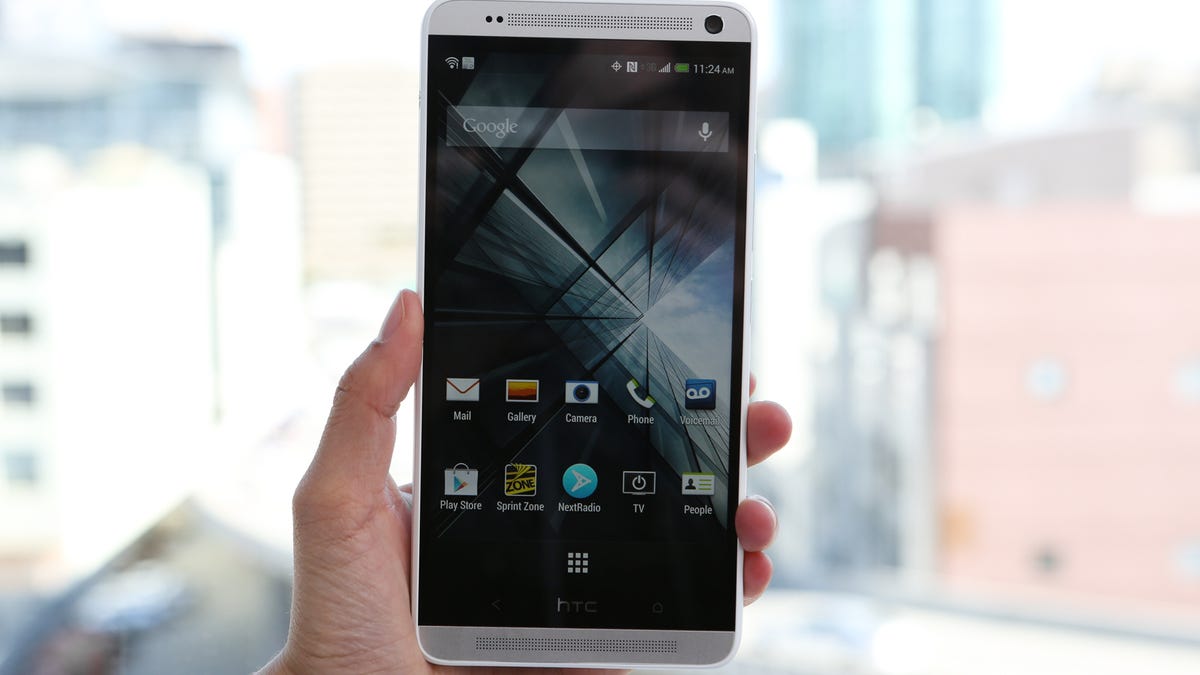Sprint unveils Spark, its ultra-fast 1Gb wireless service
Spark, which will start at 50 to 60 mbps and move to 1 Gbps, arrives in five markets to select Sprint phones, including LG G2 and HTC One Max.

Sprint wants to get back into the network speed discussion badly.
The company on Wednesday unveiled Sprint Spark, its brand for the ultra-fast LTE service that eventually will offer a wireless connection capable of delivering data at a blazing 1Gbps. But initially, Spark will be able to deliver peak speeds of 50 to 60Mbps.
Sprint, which has fallen behind in its deployment of a faster 4G LTE network, is in desperate need of catching up with the competition. Sprint has been hampered by the shutdown of its Nextel network and complications with business deals, including the acquisition of former partner Clearwire and a takeover by Japanese carrier SoftBank. The company lags behind at a time when consumers are focusing more on the speed of their service.
Sprint earlier reported a return to profit in the third quarter, even as it lost 313,000 net customers, including a troubling loss of 360,000 contract customers. Its loss comes at a time when T-Mobile has thrown out promotion after promotion in an aggressive bid to win back customers, as Verizon Wireless and AT&T busily lock up their most valuable subscribers.
Spark is part of Sprint's bid for comeback, but it's more promise than a full-fledged service. CEO Dan Hesse demonstrated the network's ability to deliver a peak 1Gbps connection at the company's lab in Burlingame, Calif. The service, however, won't be able to deliver that kind of speed anytime soon.
Spark is available today in five markets: New York, Los Angeles, Chicago, and Tampa and Miami, Fla. Sprint also unveiled a new set of phones compatible with Spark: the
Spark is able to deliver higher LTE speeds because it juggles three spectrum bands, entailing Sprint's spectrum, spectrum from its now defunct Nextel network, and spectrum taken from its acquisition of Clearwire. Because the three swaths of spectrum run at different frequencies, it was seen as a potential mess for Sprint. But the company's Network Vision upgrade plan allows its infrastructure to handle all three bands. The four new phones will be the first wave of tri-band-compatible devices.
The Galaxy S4 Mini and Galaxy Mega will get a software update for tri-band compatibility shortly after launch, while the G2 will get its software update early next year.
The company said the new phones -- once updated -- would be able to get peak speeds of 50 to 60Mbps on a limited basis in those markets. However, given that this is the theoretical peak, the connection speed will likely be significantly slower. Still, it would be much faster than the standard speed of around 10Mbps that customers would see on rival LTE networks.
Sprint said the network could increase the speed over time and that it is technically possible to deliver a peak speed of 2Gbps over the air.
The company plans to deploy Spark in 100 of the nation's largest cities over the next three years. It already said it expects to cover 200 million people by the end of the year. Sprint has bumped its estimate to 250 million people by the end of 2014.
During a conference call earlier today, Hesse hinted at an announcement that would tie in with its unlimited-for-life offering. The "for life" part could be significant for customers who hang on to get Spark. Because for many people, it will be a long wait.

